A step-by-step guide on how to apply for Thailand’s DTV visa as a digital nomad, including eligibility, costs, remote work proof & dependent info.
⚠️ Disclaimer: This blog is for informational purposes only. I am not a visa agent, government representative, or legal expert. I am sharing this based on my personal experience applying for the Thailand Digital Nomad (DTV) visa while living in Sri Lanka.
Thailand's new DTV Visa—short for Destination Thailand Visa—is designed for digital nomads, remote workers, and long-term travelers who want to live in Thailand while working online. If you're searching for a way to work remotely and experience Thai life, this visa might be the right fit.
If you are interested in learning more about Thailand, read 🇹🇭 Thailand Travel Guide (2025): Where to Go, Stay, Eat & Explore and Thailand Travel Guide for First-Timers & Nomads (2025 Edition)
✅ What Is the Thailand DTV Visa?
The DTV Visa is Thailand’s newly introduced long-stay visa option aimed at attracting digital nomads, remote workers, and people working in the creative and tech industries.
With this visa, you can:
- Stay in Thailand for up to 5 years
- Remain in-country 180 days per entry
- Bring dependents (Dependant has to apply separately after the main applicant's visa is granted)
- Re-enter the country multiple times
📋 DTV Visa Thailand Requirements
To be eligible for the DTV visa, you need to:
- Be 18 years or older
- Show proof of employment or freelance work with clients or a company outside Thailand
- Provide a bank statement showing 500,000 THB or equivalent in the past 6 months
- Have proof of accommodation in Thailand
- Pay the visa fee of 10,000 THB or the indicated amount for the country you are applying from
📝 Some additional embassy-specific requirements may include:
- A valid passport with at least 6 months' validity
- Recent passport-sized photograph
- Proof of residence in the country you're applying from (e.g. utility bill or lease)
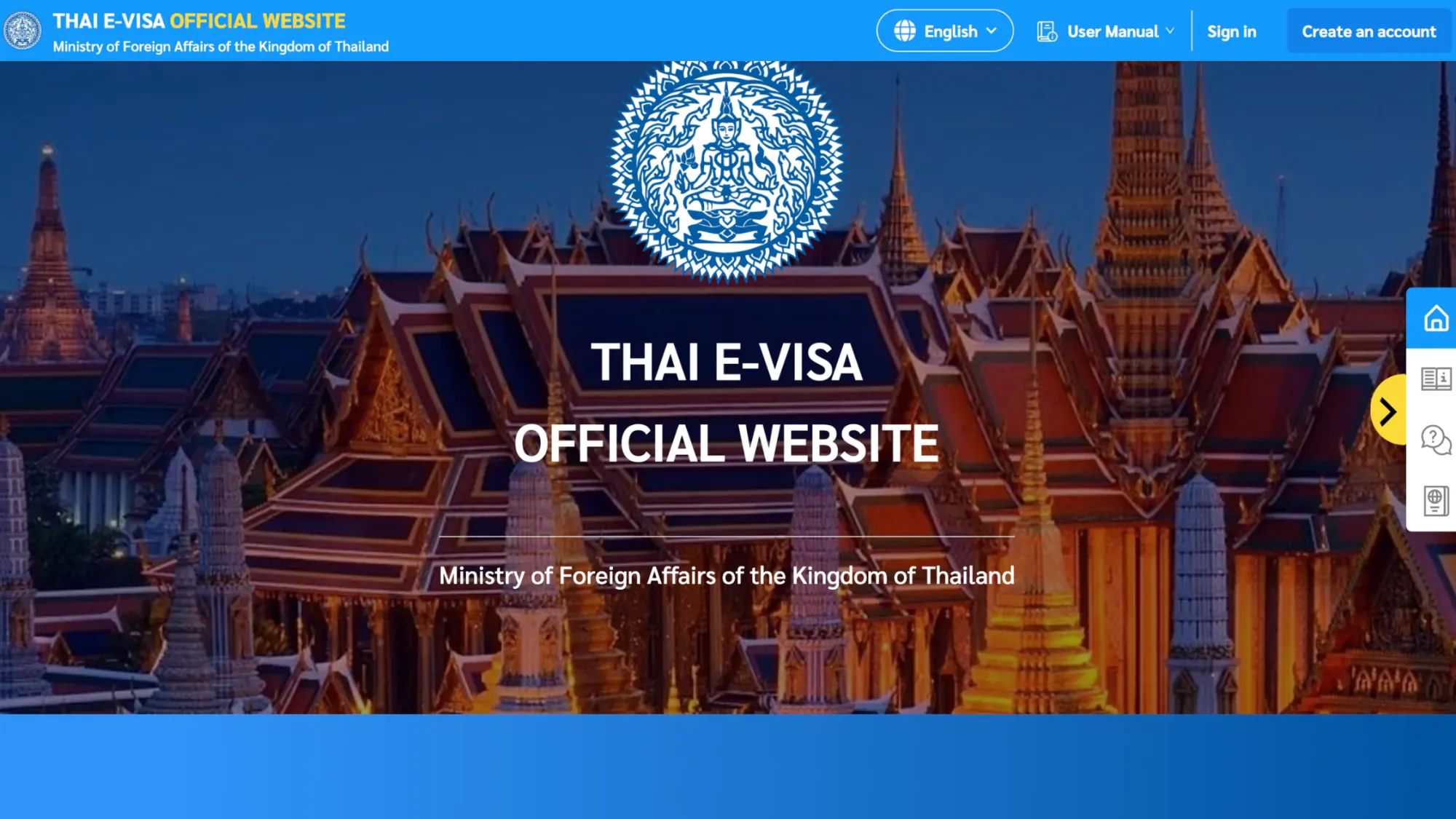
🎭 Two Pathways for the DTV Visa
There are two main categories under which you can apply for the DTV Visa:
- Soft Power Activities (Thai cultural or wellness experiences), such as:
- Muay Thai training
- Thai culinary education
- Traditional Thai medicine or wellness programs
- Workcation / Remote Work (the digital nomad track), including:
- Remote employees of foreign companies
- Freelancers with international clients
- Foreign talent in creative, tech, or design fields
Choose the pathway that matches your purpose in Thailand. Each has the same visa duration and core requirements, but the documents you provide might differ slightly.
UPDATE: An easy way to get the DTV soft power completely online is at the Thai Cultural Exchange.
✈️ How I Applied for the DTV Visa from Sri Lanka (the digital nomad track)
Here’s what I did:
- Create an account on www.thaievisa.go.th
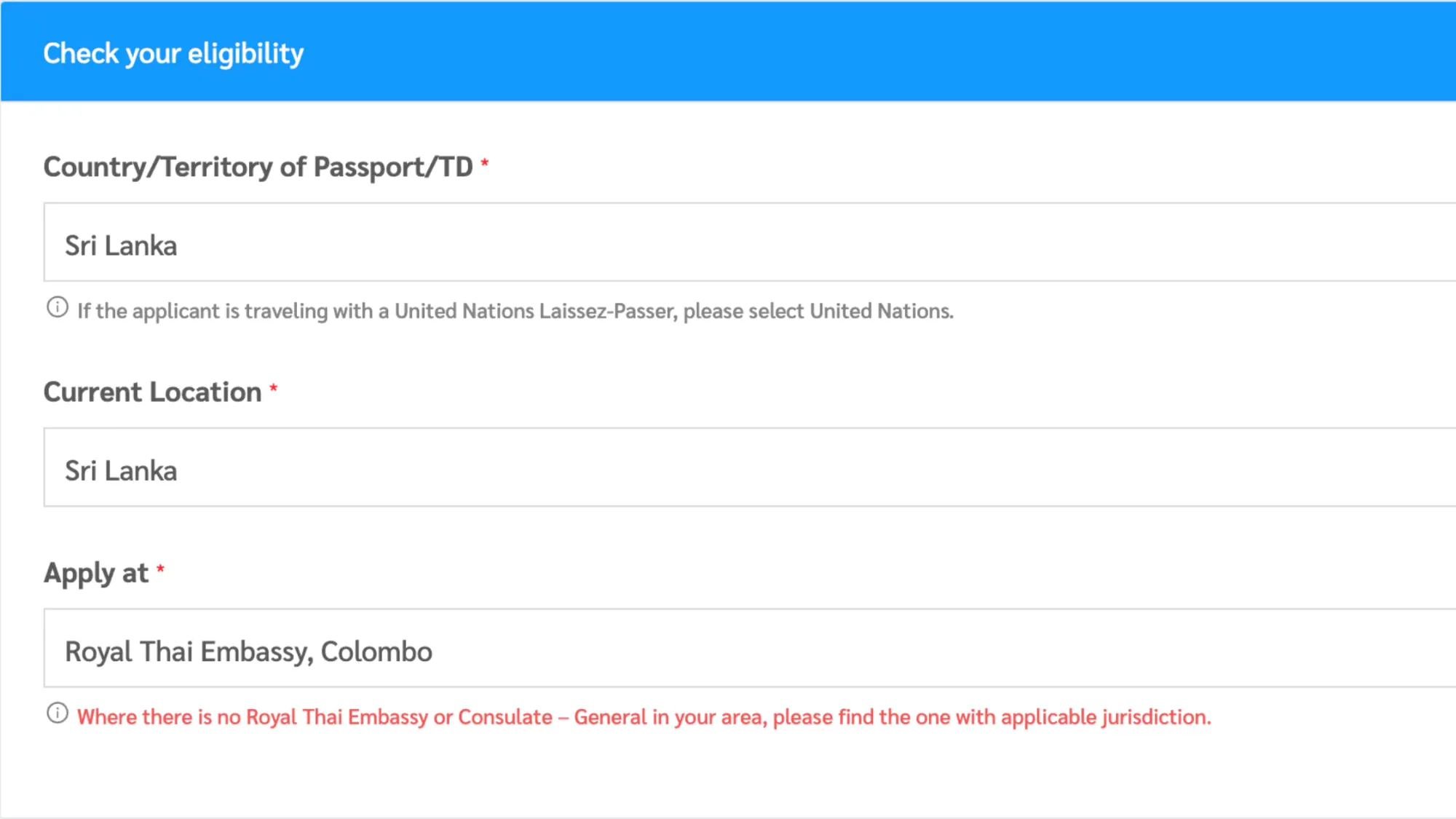
- Select "Destination Thailand Visa (DTV)" from the visa types
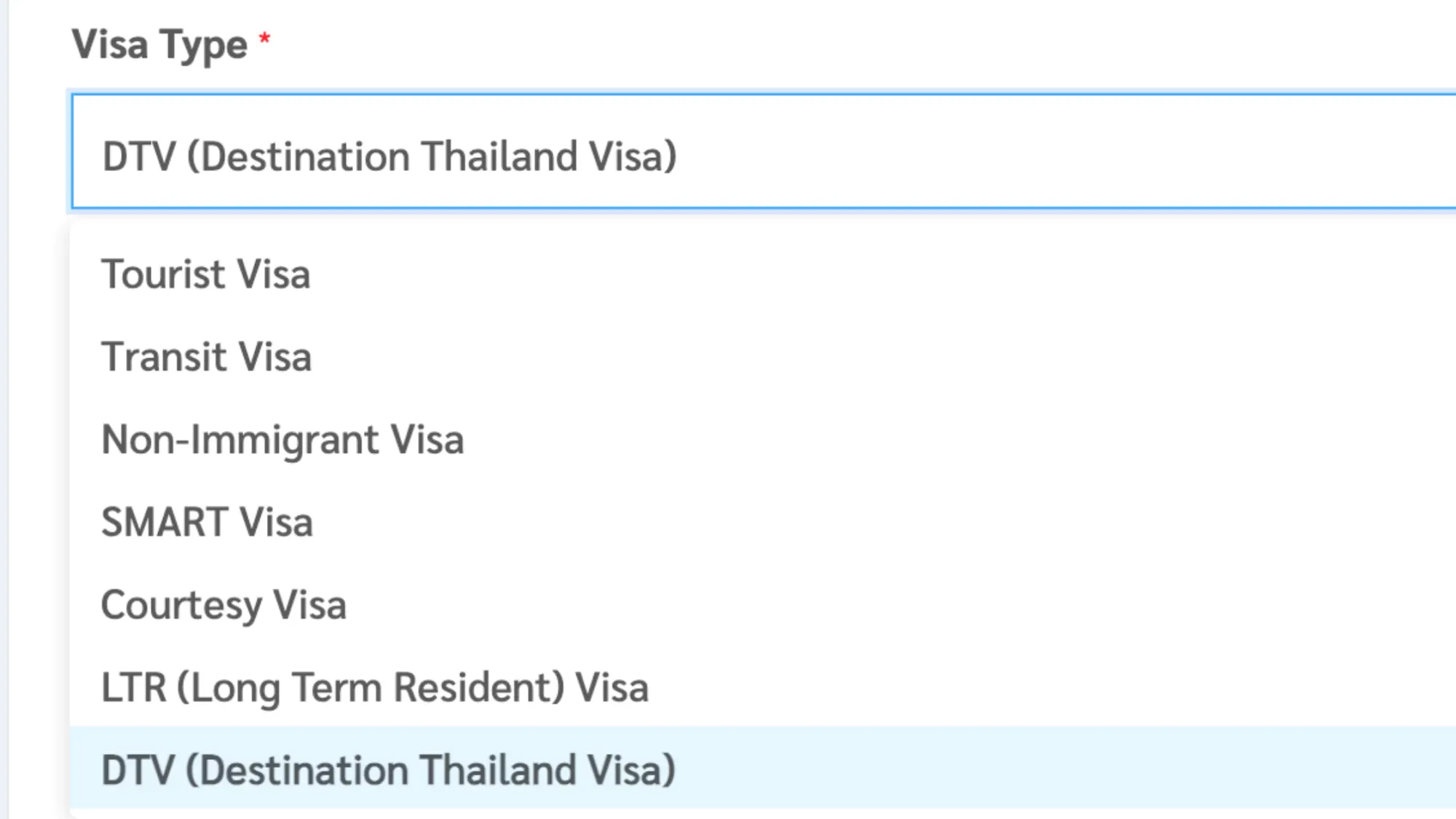
- Select "Thai soft power related activities e.g. muaythai, Thai culinary training and medical treatment" OR "Workcation (digital nomad/remote worker/ foreign talent/freelancer)" depending on your purpose of visit
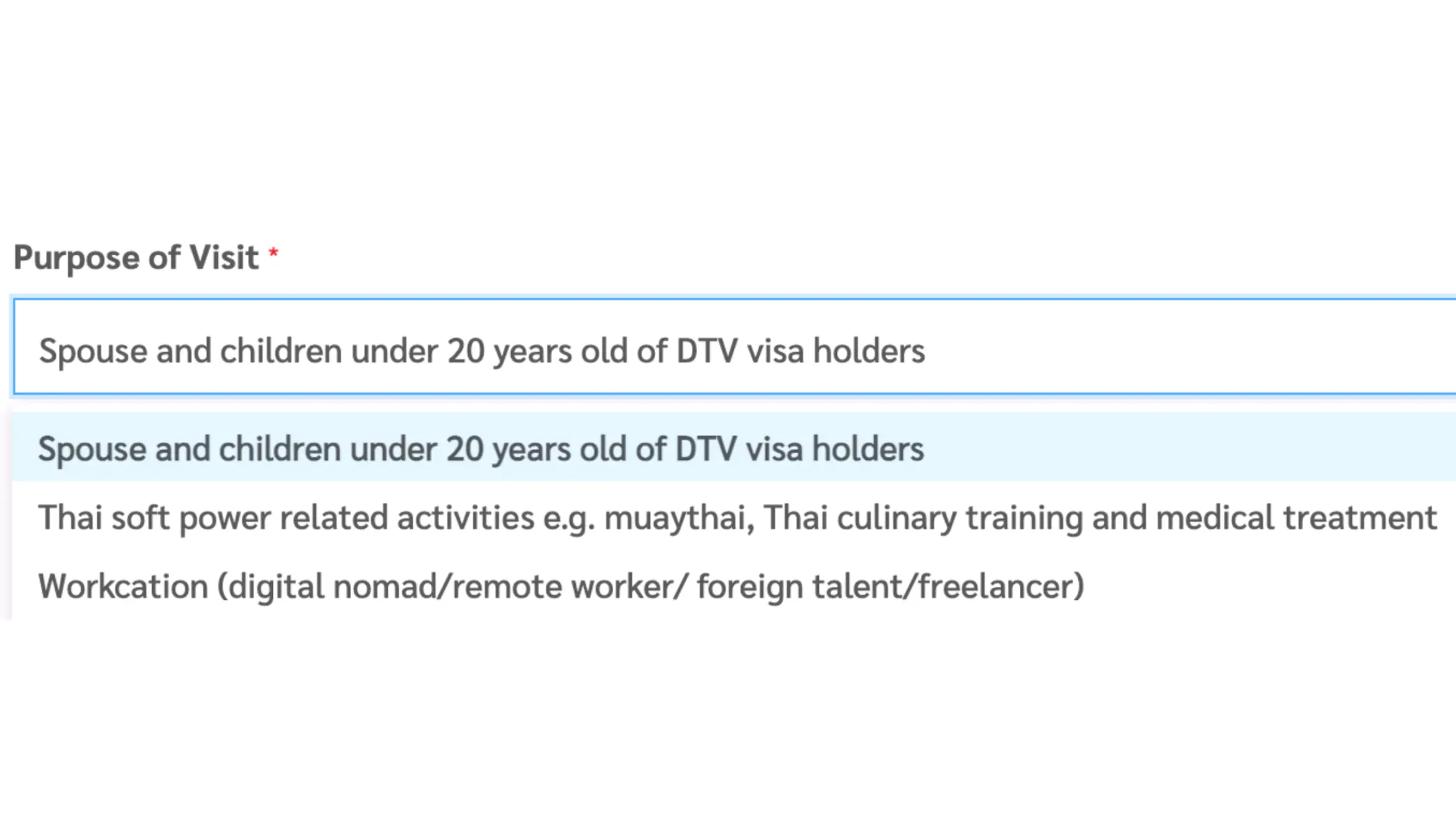
- Uploaded the following:
- Passport (6-month validity)
- Passport-sized photo
- Proof of remote work (contract and pay slips showing non-Thai employment for me)
- Bank statement showing a minimum balance of 500,000 THB or equivalent
- Proof of residence in Sri Lanka (I used a utility bill)
- The Thai Embassy in Colombo reviewed the documents and sent me an email to schedule an interview
- Attended the in-person appointment with original documents
- Received the visa electronically within 2-3 days.
The whole process took roughly one week for me. I applied on a Friday, received a request for additional documents on Tuesday, and once I uploaded them, I was called in for an interview at the Thai Embassy in Colombo.
⚠️ Reminder: This blog reflects my personal experience and is for information only. I’m not a visa expert.
👨👩👧👦 How to Apply for a Dependent Visa (After Main Applicant's Visa Approval)
Once your DTV visa is approved and issued, your spouse or children under 20 can apply for their dependent visa.
Here’s how it works:
- The main applicant must first be granted the DTV visa
- Dependents apply separately using their own account at thaievisa.go.th or from the same account as the main applicant.
- Make sure to select the Purpose of Visit as "Spouse and Children under 20 years of old of the DTV visa holder"
- Documents typically required include:
- Copy of the main applicant’s DTV visa
- Birth or marriage certificate (translated and legalized)
- Passport and photo of the dependent
- Proof of relationship (marriage certificate for the spouse and birth certificate for children)
- Proof of accommodation and shared address
- An embassy interview may also be required depending on the embassy.
Fees and document requirements may vary slightly by embassy, so always check with the Thai mission you’re applying through.
⚠️ Final Reminder: This post is based solely on my personal experience. I am not a licensed visa expert or affiliated with the Thai government. Please check the official site thaievisa.go.th and your local Thai embassy for the latest updates.
❓ Frequently Asked Questions: Thailand DTV Visa
1. What is the Thailand DTV visa?
The DTV (Destination Thailand Visa) is a long-stay visa designed for digital nomads, remote workers, freelancers, and people engaging in Thai cultural activities. It allows multiple entries over 5 years, with each stay lasting up to 180 days.
2. How do I apply for a DTV visa in Thailand?
You can apply for the DTV visa online through thaievisa.go.th. You’ll need to create an account, select the DTV option, upload required documents (e.g., passport, proof of remote work, financials), and attend an embassy appointment.
3. What are the requirements for the DTV visa in Thailand?
Applicants must be 18+, have proof of remote employment or freelance work with foreign clients, show financial stability with at least 500,000 THB in their bank account, and provide proof of legal residence in the country of application.
4. How much is the DTV visa fee?
The standard fee for the DTV visa is approximately 10,000 Thai Baht (around $280 USD). Additional embassy fees may apply depending on the country where you apply.
5. Is the DTV visa available for dependents or families?
Yes. Spouses and children under 20 years old can apply separately as dependents after the main applicant has been granted a DTV visa. Separate application fee will be applied here.
6. Can I work in Thailand on a DTV visa?
You are allowed to work remotely or freelance only for companies and clients outside Thailand. You cannot legally take employment from a Thai entity while holding the DTV visa.
7. What are the advantages of a Thailand DTV visa?
The DTV visa offers long-term flexibility, multiple entries, eligibility for dependents, and the freedom to live in Thailand while working remotely. It’s ideal for digital nomads, tech professionals, and cultural creatives.
8. What’s the difference between the DTV visa and other Thai visas?
Unlike tourist visas or education visas, the DTV visa supports long stays (up to 5 years) and is tailored specifically for digital nomads and soft power-related activities like Muay Thai or culinary arts.

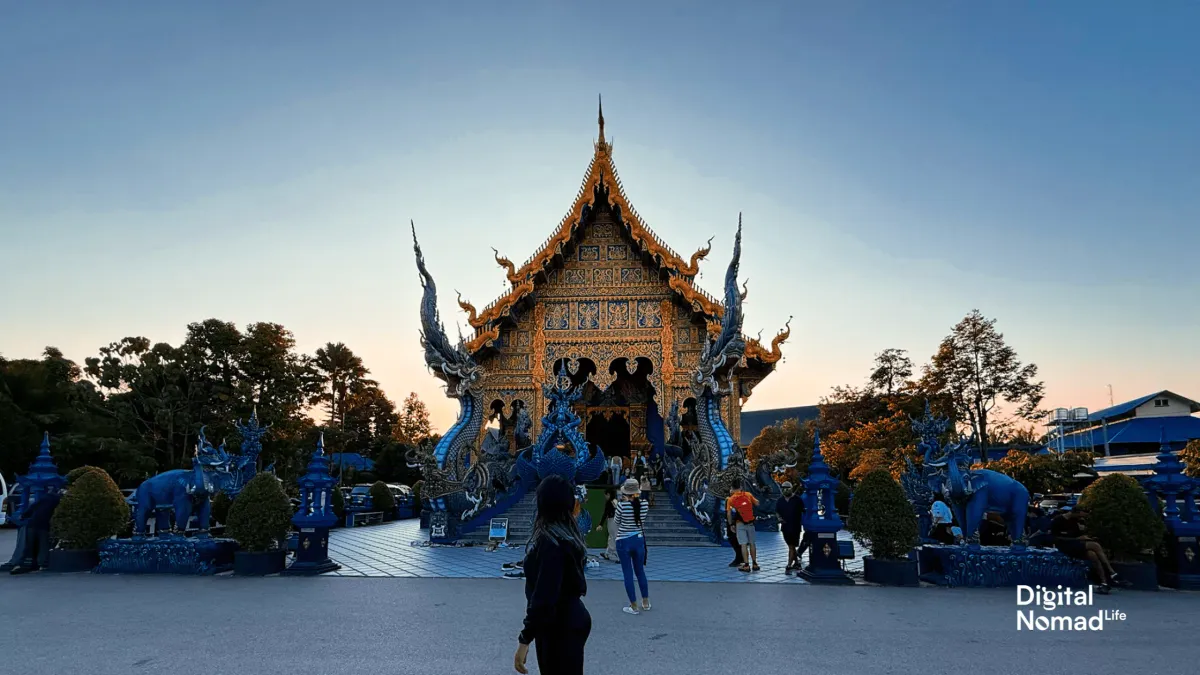
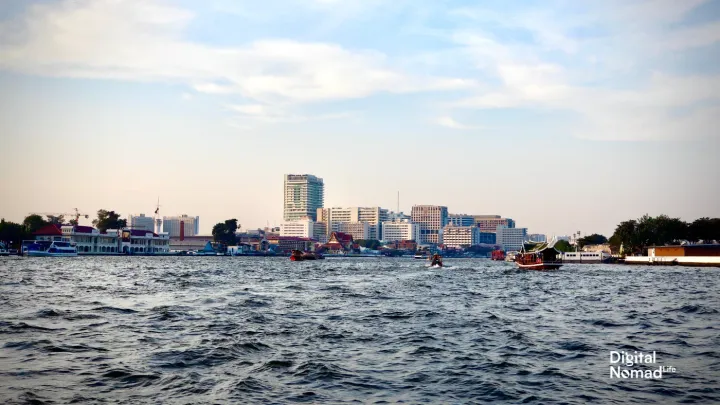

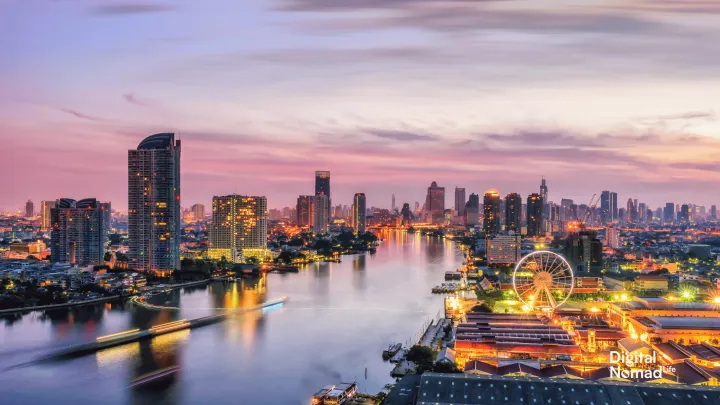
Comments ()